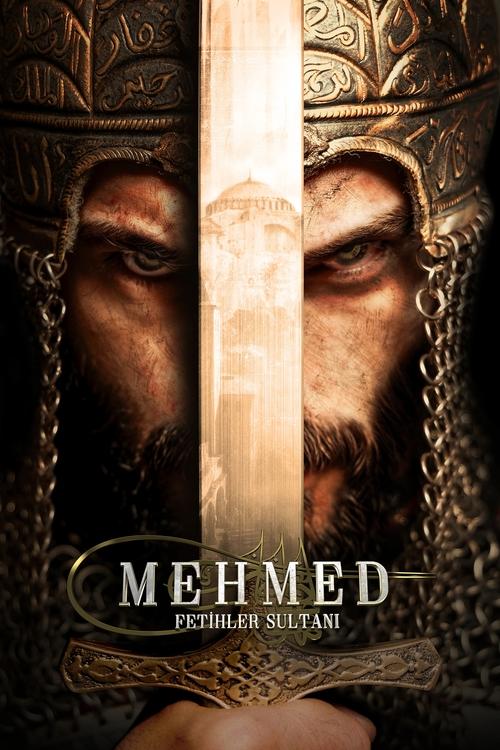
Ask Your Own Question
What is the plot?
In the opening scene of "Episode 18," the tension is palpable as the Seljuk forces prepare for a decisive confrontation. The camera pans over the camp, capturing the anxious faces of soldiers sharpening their weapons and checking their armor. Sultan Melik Shah is seen deep in thought, contemplating the weight of leadership and the impending battle against the Byzantines. His internal struggle is evident as he grapples with the responsibility of protecting his people while also dealing with the political machinations surrounding him.
As the sun rises, the Seljuk army sets out towards the battlefield. The atmosphere is charged with anticipation and fear. Melik Shah gathers his commanders, including the fierce and loyal commander, Tapar, and the wise strategist, Nizam al-Mulk. They discuss their battle strategy, emphasizing the importance of unity and strength. Melik Shah's determination to lead his men into battle is clear, but he also shows concern for the lives of his soldiers, revealing his compassionate side.
The scene shifts to the Byzantine camp, where the Byzantine commander, Alexios, is rallying his troops. He is confident and ruthless, believing that victory is within reach. The contrast between the two leaders is stark; while Melik Shah is contemplative, Alexios is aggressive and eager for conquest. The tension builds as both armies prepare for the clash, with the camera capturing the grim resolve on the faces of the soldiers.
As the battle begins, chaos erupts on the battlefield. The sound of clashing swords and the cries of men fill the air. Melik Shah leads the charge, his presence inspiring his troops. The choreography of the battle is intense, with close-ups of individual fights showcasing the brutality of war. Tapar fights valiantly, taking down several Byzantine soldiers, while Nizam al-Mulk provides strategic guidance from a vantage point, directing troops to flank the enemy.
In the midst of the battle, a critical moment arises when Melik Shah faces Alexios in a one-on-one confrontation. The two leaders engage in a fierce duel, each showcasing their combat skills. The fight is brutal, with both men sustaining injuries. Melik Shah's determination to protect his kingdom fuels his strength, while Alexios's arrogance begins to falter as he realizes he may be outmatched. The duel culminates in a dramatic moment where Melik Shah gains the upper hand, ultimately defeating Alexios, which sends shockwaves through the Byzantine ranks.
With their leader defeated, the Byzantine forces begin to retreat. The Seljuk army, emboldened by their victory, pursues them, leading to a chaotic chase across the battlefield. The camera captures the desperation of the fleeing soldiers and the relentless pursuit of the Seljuks. Amidst the chaos, Melik Shah's leadership shines as he encourages his men to press on, emphasizing the importance of not letting the enemy escape.
After the battle, the scene shifts to the aftermath, where the Seljuk soldiers celebrate their hard-fought victory. However, Melik Shah remains somber, reflecting on the cost of war. He walks through the battlefield, witnessing the fallen soldiers from both sides, which weighs heavily on his heart. His internal conflict about the nature of power and the sacrifices made for it becomes more pronounced.
In a quieter moment, Melik Shah meets with Nizam al-Mulk to discuss the future of the Seljuk Empire. They talk about the need for stability and the importance of governance in the wake of their victory. Nizam al-Mulk emphasizes the need to win the hearts and minds of the people, suggesting reforms that could strengthen their rule. Melik Shah listens intently, recognizing the wisdom in Nizam's words.
The episode concludes with a scene of Melik Shah standing atop a hill, overlooking the battlefield as the sun sets. He reflects on the challenges ahead, knowing that while they have won this battle, the war for the future of the Seljuk Empire is far from over. His expression is a mix of determination and sorrow, encapsulating the burdens of leadership and the complexities of his role as Sultan.
What is the ending?
In the ending of "The Great Seljuks," Season 1, Episode 18, the power dynamics shift dramatically as the Seljuk Empire faces internal and external threats. The episode culminates in a tense confrontation that leads to significant losses and a re-evaluation of loyalties among the characters. The fate of key figures is sealed as alliances are tested, and the consequences of their actions come to fruition.
As the episode unfolds, we see the aftermath of the ongoing conflict. The Seljuk forces are in disarray, and the tension is palpable. The main characters, including Sultan Melikshah, Nizam al-Mulk, and the various factions vying for power, are at a crossroads.
Scene 1: The episode opens with Sultan Melikshah grappling with the weight of leadership. He stands in his tent, surrounded by advisors, contemplating the recent betrayals and the precarious state of the empire. His face reflects a mix of determination and despair as he realizes that trust has become a rare commodity.
Scene 2: Meanwhile, Nizam al-Mulk is seen in a strategic meeting with his loyalists. He is animated, passionately discussing the need for unity among the Seljuks. His internal struggle is evident; he knows that the empire's survival hinges on their ability to work together, yet he is aware of the growing dissent among the ranks.
Scene 3: The tension escalates when a rival faction, led by a discontented noble, launches a surprise attack on the Seljuk camp. The chaos that ensues is intense, with soldiers clashing and the sounds of battle echoing through the night. Melikshah and Nizam al-Mulk rally their troops, showcasing their leadership and resolve amidst the turmoil.
Scene 4: In the heat of battle, personal stakes rise as characters confront their past decisions. Melikshah faces off against the leader of the rival faction, a former ally turned enemy. Their duel is not just a physical confrontation but a clash of ideologies, representing the fractures within the empire.
Scene 5: As the battle rages on, Nizam al-Mulk finds himself in a precarious situation, trying to save a group of soldiers trapped behind enemy lines. His bravery shines through, but it comes at a cost. He is wounded, and the weight of his injuries symbolizes the sacrifices made for the greater good.
Scene 6: The climax of the episode occurs when Melikshah, despite his injuries, manages to turn the tide of the battle. He delivers a rousing speech to his troops, igniting their spirits and reminding them of their shared purpose. The Seljuks rally together, pushing back the attackers and reclaiming their ground.
Scene 7: In the aftermath of the battle, the emotional toll is evident. The camp is littered with the remnants of conflict, and the surviving characters are left to reckon with their losses. Melikshah stands amidst the ruins, reflecting on the fragility of power and the cost of loyalty.
Scene 8: The episode concludes with a somber tone as the surviving characters gather to mourn their fallen comrades. Nizam al-Mulk, despite his injuries, vows to continue fighting for the empire's future. Melikshah, now more resolute than ever, understands that the path ahead will be fraught with challenges, but he is determined to lead his people through the darkness.
In the end, the fates of the main characters are intertwined with the fate of the Seljuk Empire. Melikshah emerges as a more hardened leader, Nizam al-Mulk's loyalty is tested but remains steadfast, and the rival factions are left to reconsider their positions in the ever-shifting landscape of power. The episode closes on a note of uncertainty, leaving viewers to ponder the future of the empire and its leaders.
Is there a post-credit scene?
What significant decisions does Sultan Melikshah make in Episode 18 that impact his reign?
In Episode 18, Sultan Melikshah faces critical decisions regarding the loyalty of his generals and the stability of his empire. He grapples with the betrayal of key figures and must choose whether to trust his instincts or rely on the counsel of his advisors. His internal conflict is palpable as he weighs the consequences of his choices on the future of the Seljuk Empire.
How does the relationship between Nizam al-Mulk and Sultan Melikshah evolve in this episode?
In this episode, the bond between Nizam al-Mulk and Sultan Melikshah is tested as they confront external threats and internal dissent. Nizam's unwavering loyalty is challenged by the Sultan's increasing paranoia, leading to tense exchanges that reveal their deep-seated fears and aspirations. Their relationship oscillates between camaraderie and suspicion, highlighting the complexities of power dynamics.
What role does the character of Terken play in the events of Episode 18?
Terken's character is pivotal in Episode 18 as she navigates the treacherous waters of court politics. Her ambitions and desire for power lead her to manipulate situations to her advantage, creating tension with other characters. Her emotional turmoil is evident as she struggles with her love for Melikshah and her thirst for control, making her a formidable player in the unfolding drama.
What are the consequences of the conflict between the Seljuks and their enemies in this episode?
The conflict escalates in Episode 18, leading to significant military engagements that test the Seljuks' strength and resolve. The consequences are dire, with losses on both sides that affect morale and strategy. The episode captures the chaos of battle, the desperation of the soldiers, and the strategic maneuvers of both the Seljuks and their adversaries, setting the stage for future confrontations.
How does the episode depict the theme of loyalty and betrayal among the characters?
Episode 18 intricately weaves the theme of loyalty and betrayal through the actions and motivations of its characters. As alliances shift and secrets are revealed, characters like Nizam al-Mulk and Terken face moral dilemmas that challenge their loyalties. The emotional weight of betrayal is felt deeply, as friendships are tested and the consequences of disloyalty become increasingly severe, creating a tense atmosphere throughout the episode.





























































